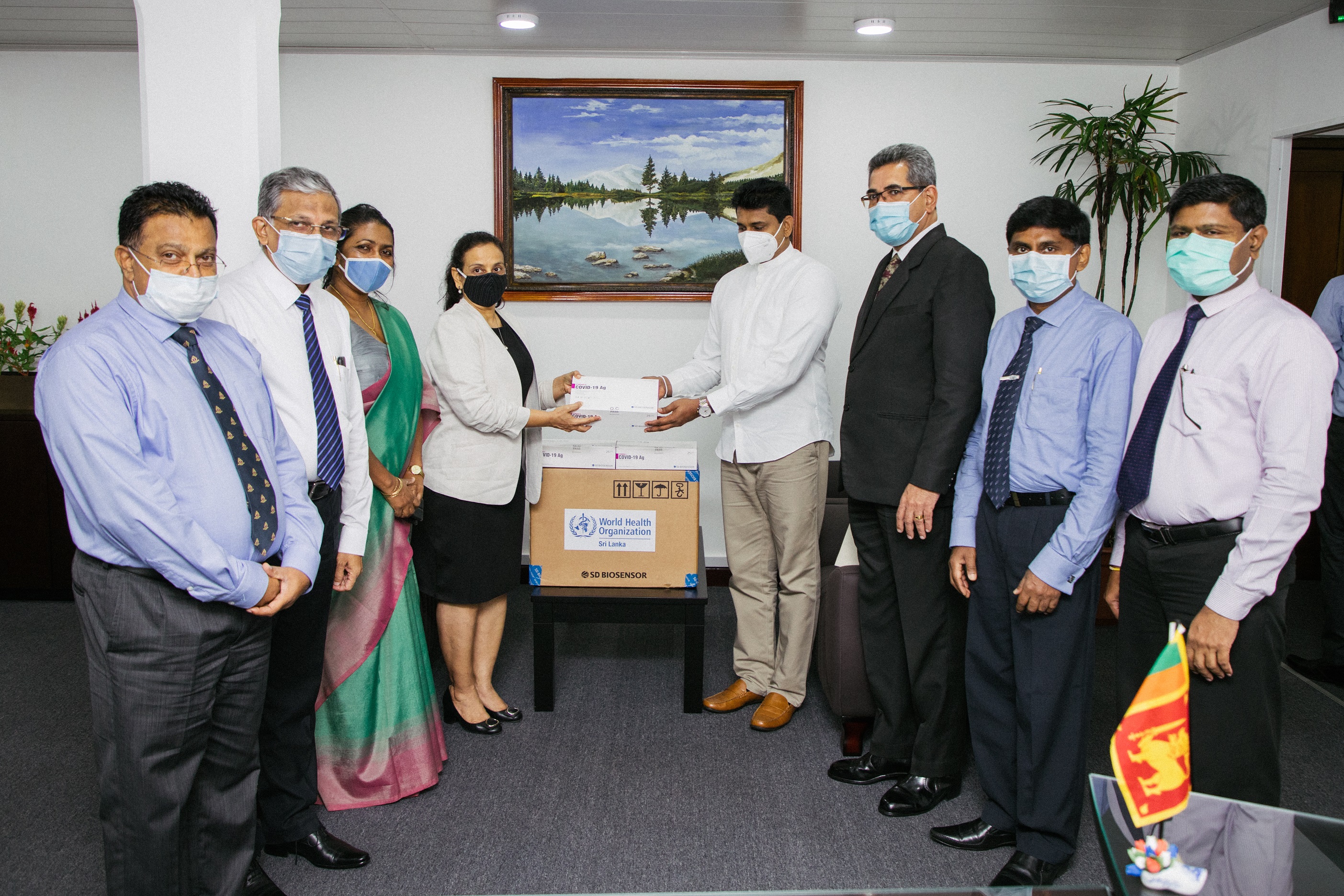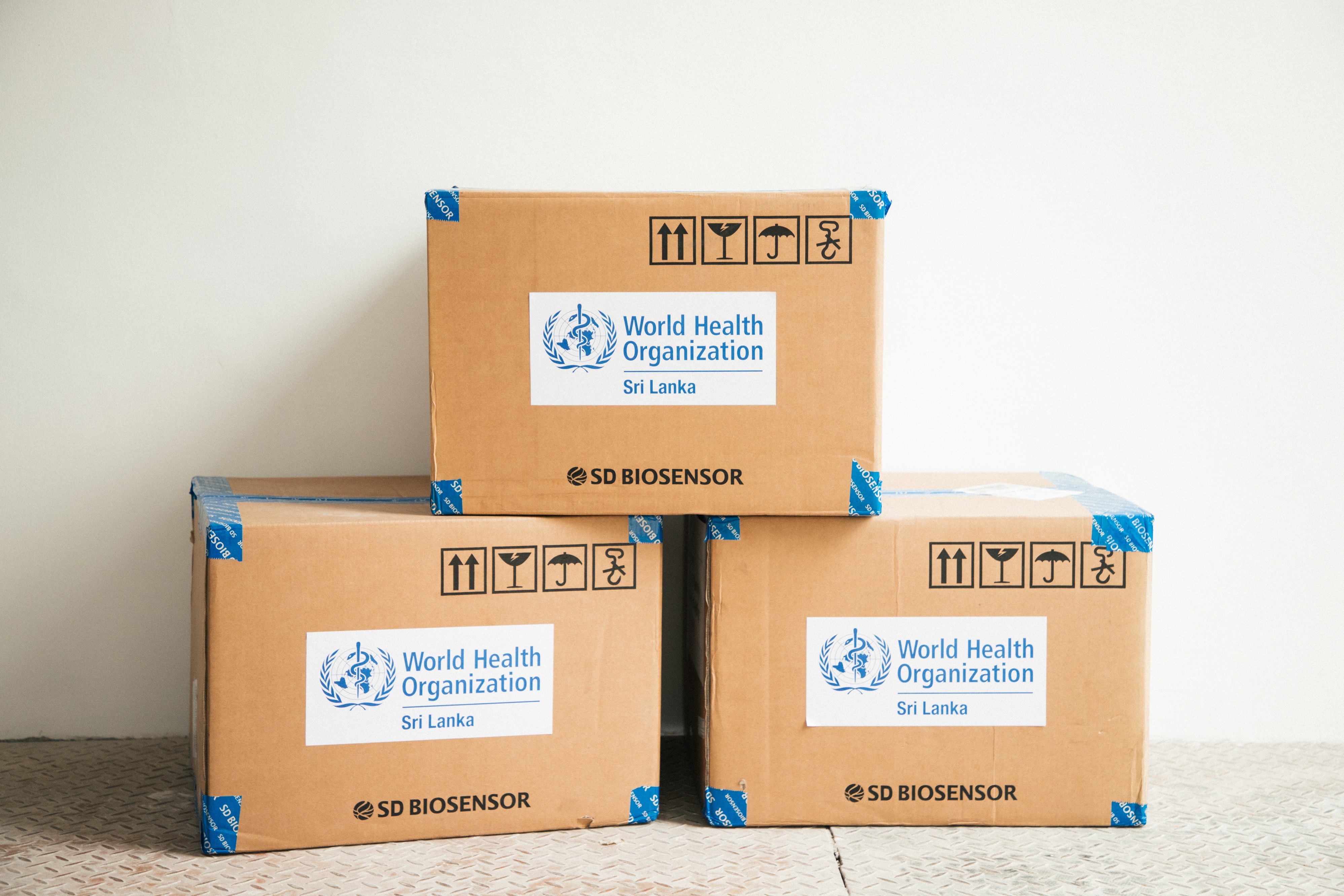WHO South-East Asia Regional Office and WHO Sri Lanka supplied 100,000 rapid antigen detection tests to support COVID-19 surveillance activities in Sri Lanka. An additional 100,000 will be provided in the upcoming weeks.
Rapid antigen tests are commonly used in the diagnosis of respiratory illnesses. In this case, the rapid antigen detection test looks for proteins produced by the SARS-CoV-2 virus, which is the virus that causes the disease called COVID-19. Antigen tests are immunoassays that detect the presence of a specific viral antigen, which means they identify people who currently have a viral infection. In some situations, they may be a viable alternative to nucleic acid amplification tests (NAAT or PCR tests), which look for viral RNA in the sample.
Rapid antigen tests are typically used outside of laboratories, at the point of care. The turnaround time for these tests is short, 10-30 minutes, and therefore they are useful for the detection of infected contacts in an outbreak setting where urgent decisions need to be made. They can be used to screen for high-risk individuals who require urgent management in locations like emergency rooms. They can also be used to monitor trends in community epidemiology, especially among healthcare workers or other exposed cohorts.
In the current context, Sri Lanka plans to use this as a fast and efficient contact tracing test to manage the current cluster and for screening high-risk groups beyond the cluster. The use of rapid antigen tests is in line with the WHO technical guidance and will allow the country to detect individuals with COVID-19 early and take the necessary steps to reduce transmission. Therefore, a testing strategy that includes the use of rapid antigen tests to complement the current capacity for PCR testing will lead to the more efficient management of the current cluster and beyond.


